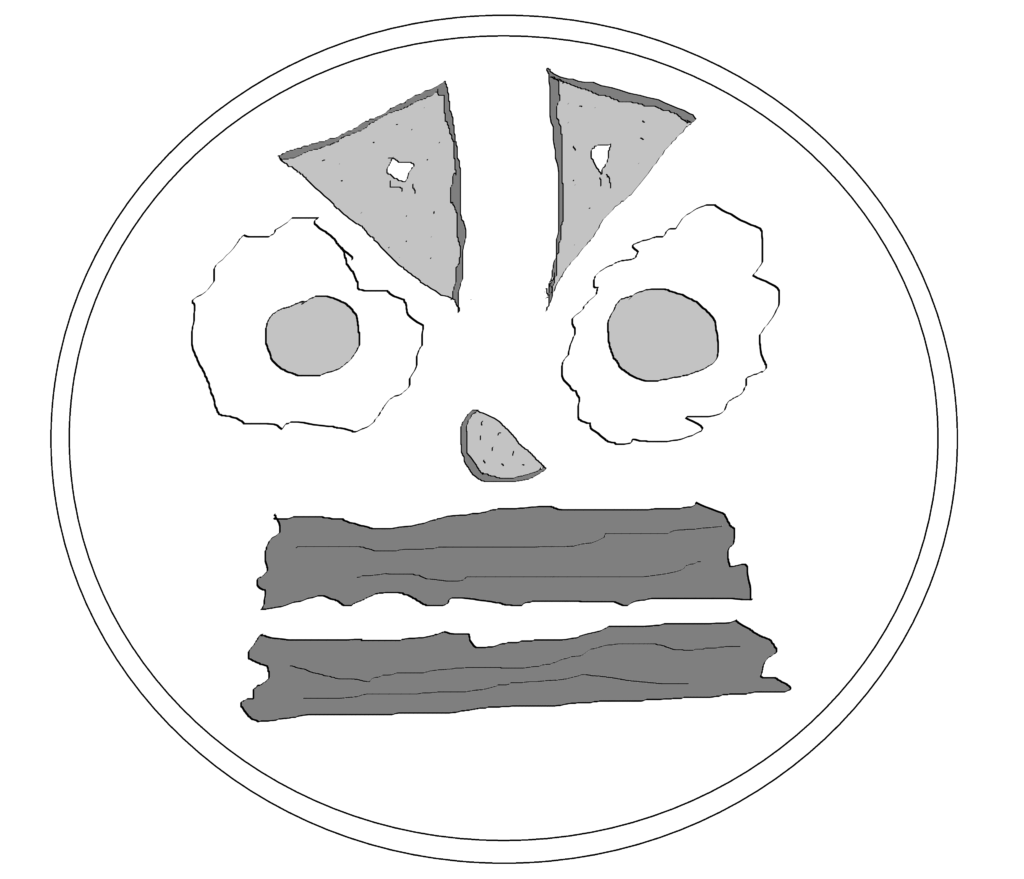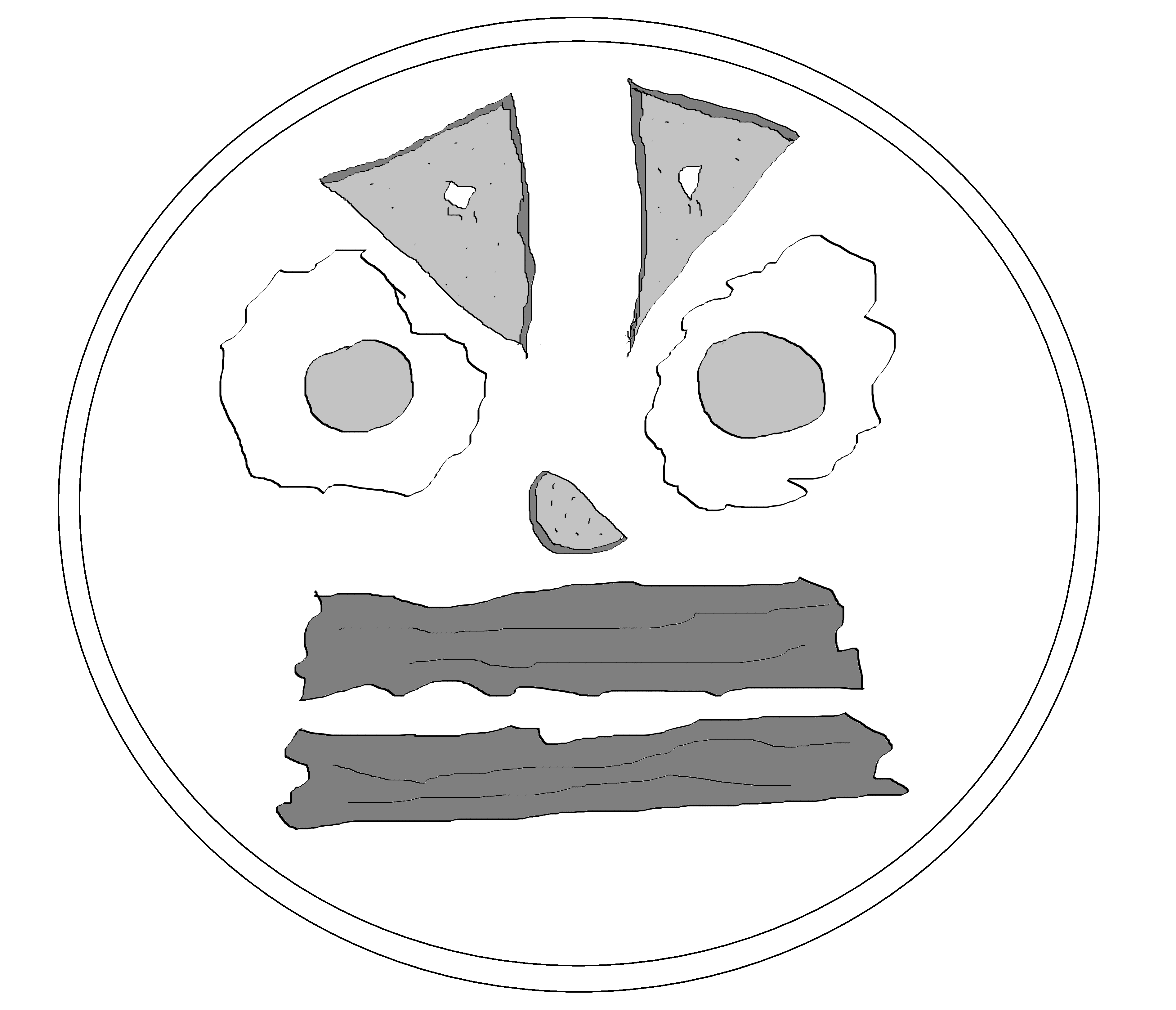
Neurotic Restaurant
A trinity of waiters huddling just inside the entrance rattle through a series of disclaimers as you walk in, seem in fact to be partway down the list already as you open the door. They take turns but occasionally miss their cues, overrunning each other. The music is too loud and cannot be adjusted, we’re terribly sorry; there is a strange smell hovering around the bar, we can’t for the life of us get at—; one table, sorry, one table is available, but you’ll find it awkwardly situated: it will be a struggle to squeeze in and out since one end of the table abuts the wall and the other end is not far from the opposite wall—the seats, you understand, being attached to the wall behind the table such that you must navigate this narrow passage to reach them. That’s assuming that you have come to eat and not for some other purpose, is that right. Such as to get out of the rain or to use the facilities—not allowed if you are not dining with us, I’m afraid—or just to rest your weary legs, as it were. We wouldn’t like to presume. We’re terribly sorry about all that and about the position it puts you in.
You move towards the awkwardly situated table and find it better than the description suggested. This will be all right, you say. Huddled conference. Well, if you’re quite sure. The tripartite waiter dissolves and scatters in three directions. One waiter doubles back on himself to speed in the other direction, issuing a fearful glance your way as he passes.
A waiter whom you cannot identify as one of the three but whose identity with one or more of them you cannot decisively rule out returns to the table a minute later sans menu to announce that the door to the toilets sticks but will open if forced, that it is all right if you force it; departs again, returns and points: the toilets are that way, down the hall and around the corner; departs again, returns: the women’s toilets are located elsewhere, but we have operated on the assumption that your inquiry pertained to the men’s toilets; we do not have gender-neutral toilets at this time; we’re terribly sorry; departs again. You hadn’t asked.
A minute later an overweight man drenched in sweat, apparently the chef, looms over the table clutching a menu. He seems to inspect you. After ten, fifteen seconds he sets down the menu and, hunching over it such that from where you’re sitting it is difficult to see much of anything, begins to enumerate its faults: the ingredients in the stew are not as listed here but as follows; patrons have often described our burgers as undercooked; it will be difficult to make the garden salad without lettuce, although we would not want to prejudice your decision (and incidentally, have you any lettuce?); none of the items listed on page four is available any more—yet—any more; the soup of the day is risky.
Two of the waiters from earlier, perhaps different waiters, return to flank the chef. Other patrons are vying for their attention, without success. When he, the chef, has finished, he and the waiters stand awaiting your decision, whispering to one another, pointing. If you will excuse my saying so, says one, I recommend against the pea soup. It seemed as though you might be preparing to order the pea soup, but that would be, as I say, an error. He falls silent, speaks up again: Don’t decide against it on my behalf, though. If you are irrevocably set on the pea soup, as you appear to be, I must stress that you are absolutely within your rights to order it. Also, chimes in the other, if you decide to leave rather than order anything, I—we all—will understand completely. We are not wed to the idea of your eating here, and you needn’t feel obligated. It’s a free country, after all. We’re terribly— The first again, cutting in: Sorry, what was that. Sorry, I thought you had said something. Never mind. Please take your time. Please, by all means.
When they fall silent at last, you seize the chance to peruse the menu, uneasy under the uneasy observation of the perspiring men but determined to consider your options directly, without their mediation. You find that the menu is long, not because of an abundance of dishes to choose from but thanks to an exhaustive series of caveats beneath each item, partially typed and partially scribbled on after the fact in an increasingly illegible hand, in blue ink and occasionally red. On closer inspection, you can make a finer distinction: some of these annotations were part of a previous edition of the menu, here reproduced in photocopy, while others are fresh, yet to be canonized. The menu, you infer, is a disputed text, each copy a separate passage in an interminable labyrinth. You select a dish almost at random: chicken of some description, with deficiencies that appear to you venal at worst. You announce your order. The three men accept it with some trepidation and rush off together towards what must be the kitchen.
Time passes.
A new man or one of the same men comes to the table and sets down a plate of something without a word. He scrutinizes it unhappily, holding up a finger in such a way that you feel you do not have permission to start eating or even to look closely at the meal yourself. After a thirty-second impasse, he seems to reach a decision, retrieves the plate with a furious glance in your direction as if to ensure you relinquish it without resistance, turns and carries it off in silence. You think it was something with carrots, some sort of creamy sauce. You were prepared to eat it. A minute later, the too-loud music cuts out and a voice comes over the speakers: We have had second thoughts about the sauce.
The music resumes, louder. You wait, observing the other diners. You haven’t seen the waiters approach any of the other tables. The other diners steal glances in your direction, never quite making eye contact. You have not been offered a drink. An intimidating array of cutlery in the middle of your table is its sole adornment. Eleven knives and thirteen forks: you count.
Finally, a man approaches who is new to you but appears to combine the facial features of all the previous waiters. His face is red and swollen. He carries a large plate with little food on it, hand shaking as he brings it towards you. The plate’s contents bear little resemblance to the previous offering, little resemblance to anything. He places it in front of you, pushes it perilously close to the edge of the table, almost onto your lap. Anyway, he says as if resuming an interrupted train of thought, here’s the food. Sorry. It’s ready now. Here it is. You won’t like it.

I guphawed involuntarily at the dining table while reading. This kids are still looking at me strange. Great fun.